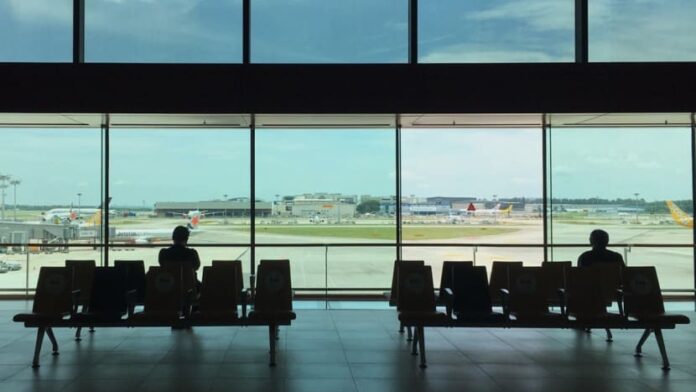Singapore: Singapore announced on Saturday (October 23) that it will reopen its borders to some travellers from six countries (including Bangladesh and India), and relax testing and inspections for several other countries (including Malaysia and Indonesia). Home notification restrictions.
The Ministry of Health (MOH) said at a media conference that this was done after reviewing the COVID-19 situation in these countries.
Starting at 11:59 pm on October 26, before heading to Singapore, travelers from Bangladesh, India, Myanmar, Nepal, Pakistan and Sri Lanka (excluding short-term tourists) with a 14-day travel history will be allowed to enter or transit. Country again.
These travelers will be subject to the fourth type of border restriction, which includes a 10-day home notice in a dedicated facility.
Simplified home notification agreement
In addition, Malaysia, Cambodia, Egypt, Hungary, Indonesia, Israel, Mongolia, Qatar, Rwanda, Samoa, Seychelles, South Africa, Tonga, United Arab Emirates (UAE) and Vietnam will be placed in the third category of measures under.
Beginning at 11:59 pm on October 26, all passengers from Category III areas can issue a 10-day home notification at their declared residence or place of accommodation regardless of the vaccination status and vaccination status of the passenger and his family members. What is the travel history.
Class III passengers must currently apply for the option not to provide home notifications in dedicated facilities, subject to certain restrictions.
“By default, they will not be assigned to any dedicated SHN facility,” the Ministry of Health said on Saturday.
It added that if their home is not suitable for their home notice, returning residents should ensure that they can find other homes before returning.
But the authorities added that these travelers must stay in their declared place of residence or domicile during the entire home notification period and wear electronic monitoring equipment.
The Ministry of Health stated: “It will take action against those who violate SHN requirements or make false declarations.”
Less testing on passengers
In addition, starting at 11:59 pm on October 26th, most travelers will undergo fewer tests.
All travelers from Type 2 (unvaccinated destinations on travel routes), Type 3, and Type 4 countries will no longer need to undergo polymerase chain reaction (PCR) testing on arrival.
Instead, they will only accept withdrawal from the PCR test at the end of the home notification.
During the home notification period, category III and category IV passengers will no longer need to undergo additional rapid antigen testing (ART) on the third and seventh days after arrival.
Fully vaccinated domestic workers
The authorities also previously announced that from November 1st, the country will allow necessary workers and students to enter Singapore in a “safe and calibrated manner”, provided that they are fully vaccinated before arrival.
“As part of this initiative, we will promote the entry of more domestic workers to meet the urgent domestic and nursing needs of local families, while cautiously adjusting the number as the global situation develops,” the press release said.
Why did Singapore relax its borders?
Health Minister Ong Ye Kung said at a press conference of the COVID-19 working group that one of the most common questions is why Singapore is reopening its borders, despite not relaxing domestic restrictions, such as allowing larger groups to eat.
He explained that border restrictions had been implemented earlier to prevent the “influx” of infections into the country.
“Now the situation has changed,” he said.
“After months of pandemic transmission, the pandemic situation in many countries has stabilized, and their infection rates-some of them are even lower than Singapore. Therefore, we can safely open up travel routes with these countries.”
He said that in order to be safer, only fully vaccinated travelers are allowed and testing is required-which is why imported infections account for only a “small part” of the total number of infections in the community.
He said that opening the border also has many benefits, including allowing the country to bring in “urgently needed” workers to complete infrastructure projects such as public housing.
He said that allowing domestic workers will also ease the pressure on many families in Singapore.
“I think (these steps) will make life easier for many businesses, contractors and families.”
A reporter also asked Mr Ong whether the classification of Singapore as a “high-risk” destination by other countries would affect travel negotiations with countries such as Australia.
In this regard, Mr Ong said: “I think they reflect the fact that we are going through a big wave… But there is a lot of goodwill between these partners, not only Germany and the United States, but also Australia.”
“At some point (infections) will stabilize and (they) will decline. We all hope to work together to keep our contacts and our people-to-people exchanges.
“Therefore, it shouldn’t, and I don’t think it will prevent us from continuing our joint initiative to develop a vaccination lane,” Mr. Ong said.






